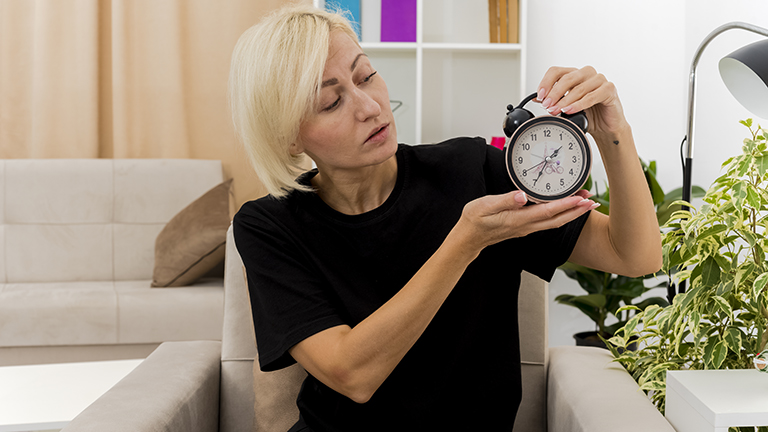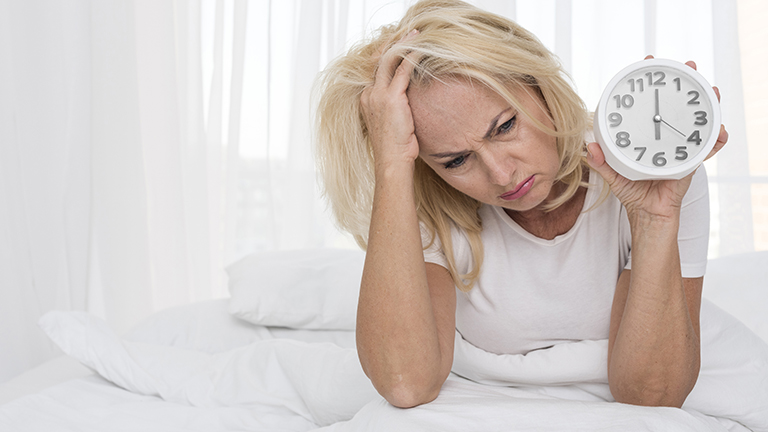Hot flashes are one of the most common and distressing symptoms experienced during menopause. They are characterised by sudden feelings of intense heat, often accompanied by sweating and a rapid heartbeat. These episodes can last from a few seconds to several minutes and may occur multiple times a day. The primary cause of hot flashes is hormonal fluctuations, particularly a decrease in estrogen levels. Estrogen plays a crucial role in regulating body temperature, and as its levels decline during menopause, the body’s thermoregulatory system becomes more sensitive, leading to sudden heat surges.
Other contributing factors can include lifestyle habits such as caffeine consumption, alcohol use, stress, and even certain medications. Genetics may also influence the frequency and intensity of hot flashes, making some women more susceptible than others. Understanding the root cause is essential in finding effective natural remedies for hot flashes during menopause.
Common Symptoms and Duration
In addition to sudden heat, hot flashes may include symptoms such as flushing of the face, neck, and chest, palpitations, and excessive sweating. Some women also experience night sweats, which are hot flashes that occur during sleep and can disrupt rest, leading to fatigue and irritability. The duration of these symptoms varies widely; for some women, hot flashes may persist for a few months, while others may experience them for several years.
How Hot Flashes Affect Daily Life
Hot flashes can significantly impact a woman’s quality of life. They can cause discomfort in social and professional settings, disrupt sleep patterns, and contribute to mood swings. Chronic sleep disruption from night sweats can lead to fatigue, difficulty concentrating, and emotional instability. Addressing hot flashes is not merely about comfort—it is also about preserving overall health and well-being. Natural interventions provide an effective, safe way to manage these symptoms while promoting hormone balance naturally.
Top Natural Remedies for Hot Flashes
Herbal Solutions: Black Cohosh, Red Clover, and Sage
Herbal remedies have been used for centuries to manage menopausal symptoms. Black cohosh is one of the most widely studied herbs for hot flashes. Clinical research suggests that black cohosh may mimic estrogen in the body, helping to stabilise body temperature and reduce the frequency and intensity of hot flashes. It is available in capsules, tinctures, and teas.
Red clover is another herb rich in phytoestrogens, plant-based compounds that have a weak estrogen-like effect. These compounds can help balance hormone levels and reduce hot flashes. Studies have shown that regular consumption of red clover extracts may lead to noticeable improvements in menopausal symptoms.
Sage has been traditionally used to control excessive sweating and hot flashes. Drinking sage tea or using sage supplements may provide a calming effect and help regulate the body’s heat response. Incorporating these herbs into a daily routine can provide natural and effective relief.
[INSERT_ELEMENTOR id=”5108″]
Phytoestrogen-Rich Foods to Include in Your Diet
Diet plays a crucial role in managing menopausal symptoms. Phytoestrogens are naturally occurring plant compounds that mimic estrogen and can help balance hormone levels. Foods rich in phytoestrogens include soy products like tofu, tempeh, and soy milk, as well as flaxseeds, chickpeas, and lentils. Regular consumption of these foods may reduce hot flashes and support overall hormonal health.
Vitamins and Supplements That Help
Certain vitamins and minerals can alleviate menopausal symptoms. Vitamin E has been shown to reduce the frequency of hot flashes in some women. B vitamins, particularly B6 and B12, support energy levels and mood regulation, which are often affected during menopause. Magnesium can help with sleep disturbances caused by night sweats, while omega-3 fatty acids support overall hormone balance and reduce inflammation.
Essential Oils and Aromatherapy
Aromatherapy can provide natural relief from hot flashes and stress. Clary sage, peppermint, and lavender essential oils are particularly effective. Inhaling these oils during a hot flash or using them in a diffuser can create a calming effect and reduce the sensation of heat. Topical application, when diluted with carrier oils, may also help alleviate discomfort.
Lifestyle Changes to Reduce Hot Flashes
Exercise and Physical Activity
Regular physical activity is one of the most effective non-medical approaches to managing hot flashes. Aerobic exercises such as walking, swimming, and cycling help regulate body temperature and improve circulation. Strength training supports hormonal balance and reduces stress levels. Even daily moderate activity can reduce the frequency and intensity of hot flashes.
Stress Management Techniques
Stress can exacerbate hot flashes, making relaxation practices essential. Techniques such as mindfulness meditation, deep breathing exercises, and progressive muscle relaxation can calm the nervous system and reduce the severity of hot flashes. Yoga, in particular, combines physical movement with mindfulness, providing dual benefits for body and mind.
Sleep Hygiene for Night Sweats
Night sweats can severely disrupt sleep, but certain strategies can help. Keeping the bedroom cool, using breathable cotton bedding, and establishing a consistent bedtime routine can minimise nighttime discomfort. Avoiding spicy foods, alcohol, and caffeine before bed can also reduce hot flash episodes during sleep.
Dietary Tips for Managing Menopause Symptoms
Foods to Eat
Diet plays a pivotal role in managing hot flashes and other menopause-related symptoms. Including phytoestrogen-rich foods helps naturally balance estrogen levels. Soy products, such as tofu, soy milk, and tempeh, contain isoflavones that mimic estrogen activity and may reduce hot flashes. Flaxseeds are another excellent source of phytoestrogens and provide fiber that supports digestive health.
Incorporating whole grains like quinoa, oats, and brown rice can stabilise blood sugar, which may reduce sudden heat surges. Fruits and vegetables rich in antioxidants, such as berries, leafy greens, and cruciferous vegetables, help combat oxidative stress and promote hormonal balance naturally. Nuts, seeds, and legumes also provide essential nutrients and support overall energy levels during menopause.
Foods to Avoid
Certain foods can trigger or worsen hot flashes. Spicy foods, caffeine, and alcohol are known to increase the intensity of hot flashes. Processed foods high in sugar and refined carbohydrates may cause blood sugar fluctuations, which can exacerbate symptoms. Red meat and high-fat dairy can also contribute to inflammation and hormonal imbalance. Limiting these foods while focusing on nutrient-dense, plant-based options can reduce the frequency and severity of hot flashes.
Hydration and Its Role
Adequate hydration is essential for regulating body temperature and reducing the intensity of hot flashes. Drinking enough water throughout the day helps maintain normal thermoregulation and prevents overheating. Herbal teas, especially those with calming properties like chamomile or peppermint, can also provide relief during episodes. Avoiding excessive caffeine and alcohol supports stable hydration and minimises hot flash triggers.
Mind-Body Approaches for Hot Flash Relief
Yoga and Meditation
Mind-body practices such as yoga and meditation offer significant benefits for women experiencing hot flashes. Yoga combines physical postures, breathing techniques, and mindfulness, which together promote relaxation, reduce stress, and enhance hormonal balance. Meditation helps calm the nervous system and can lower the frequency and intensity of hot flashes by promoting a state of mental equilibrium.
Breathing Exercises
Simple breathing techniques, such as diaphragmatic breathing or the 4-7-8 method, can help manage sudden hot flashes. Focusing on slow, deep breaths activates the parasympathetic nervous system, which counters the body’s stress response and reduces the sensation of heat. Practising these exercises regularly can improve overall resilience to menopausal symptoms.
Acupuncture and Alternative Therapies
Alternative therapies, such as acupuncture, have shown promise in reducing hot flashes and night sweats. By stimulating specific points in the body, acupuncture may influence hormonal regulation and improve thermoregulation. Other therapies, including massage, reflexology, and biofeedback, can support overall relaxation, enhance sleep quality, and reduce symptom severity.
When to See a Doctor
Persistent or Severe Symptoms
While natural remedies are effective for many women, some may experience persistent or severe hot flashes that interfere with daily life. Consulting a healthcare professional is essential if symptoms are intense, frequent, or accompanied by other concerning signs, such as sudden weight loss, severe fatigue, or irregular heartbeats. A doctor can help determine whether medical intervention is needed.
Hormone Replacement Therapy: Pros and Cons
Hormone replacement therapy (HRT) is a conventional medical option for managing menopausal symptoms. HRT can be highly effective in reducing hot flashes, night sweats, and other symptoms. However, it may carry risks, including increased chances of blood clots, heart disease, and certain cancers. Women considering HRT should discuss the benefits and risks with their healthcare provider and explore natural alternatives before committing to long-term hormone therapy.
Conclusion
Combining Remedies for Maximum Relief
Managing hot flashes during menopause often requires a multifaceted approach. Combining herbal remedies, phytoestrogen-rich foods, vitamins and supplements, and mind-body practices can provide comprehensive relief. Lifestyle adjustments, such as regular exercise, stress management, and proper sleep hygiene, further enhance symptom management.
By integrating these natural strategies, women can reduce hot flashes, improve sleep quality, and maintain emotional balance during menopause. A consistent approach, guided by understanding one’s body and symptoms, ensures effective and lasting relief.
Maintaining a Healthy Lifestyle Post-Menopause
Even after the most intense menopausal symptoms subside, maintaining a healthy lifestyle is crucial for long-term well-being. Balanced nutrition, regular physical activity, stress management, and adequate sleep support overall hormone balance and prevent recurrence of symptoms. Staying informed about natural remedies and making gradual, sustainable changes empowers women to navigate menopause confidently and comfortably.


